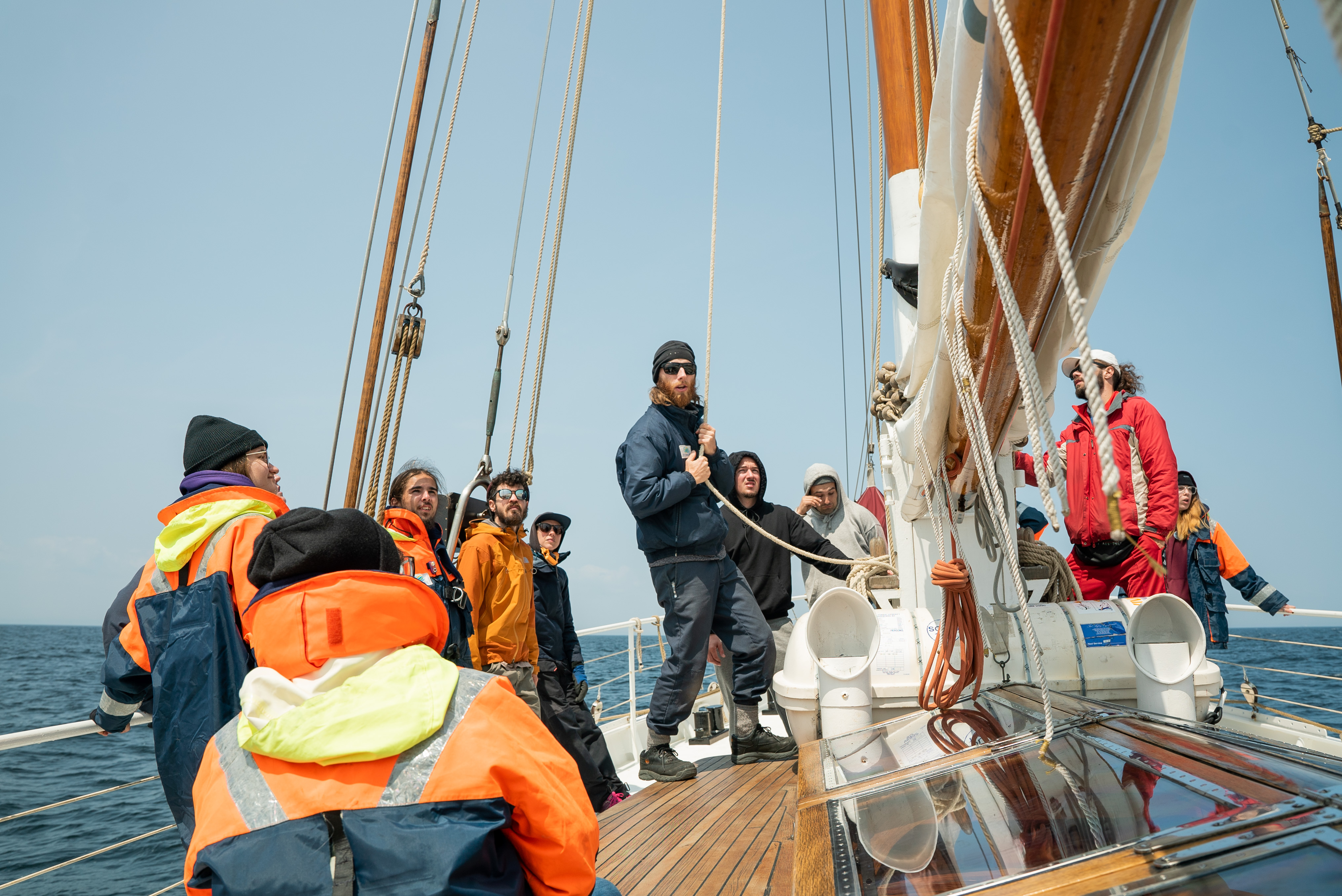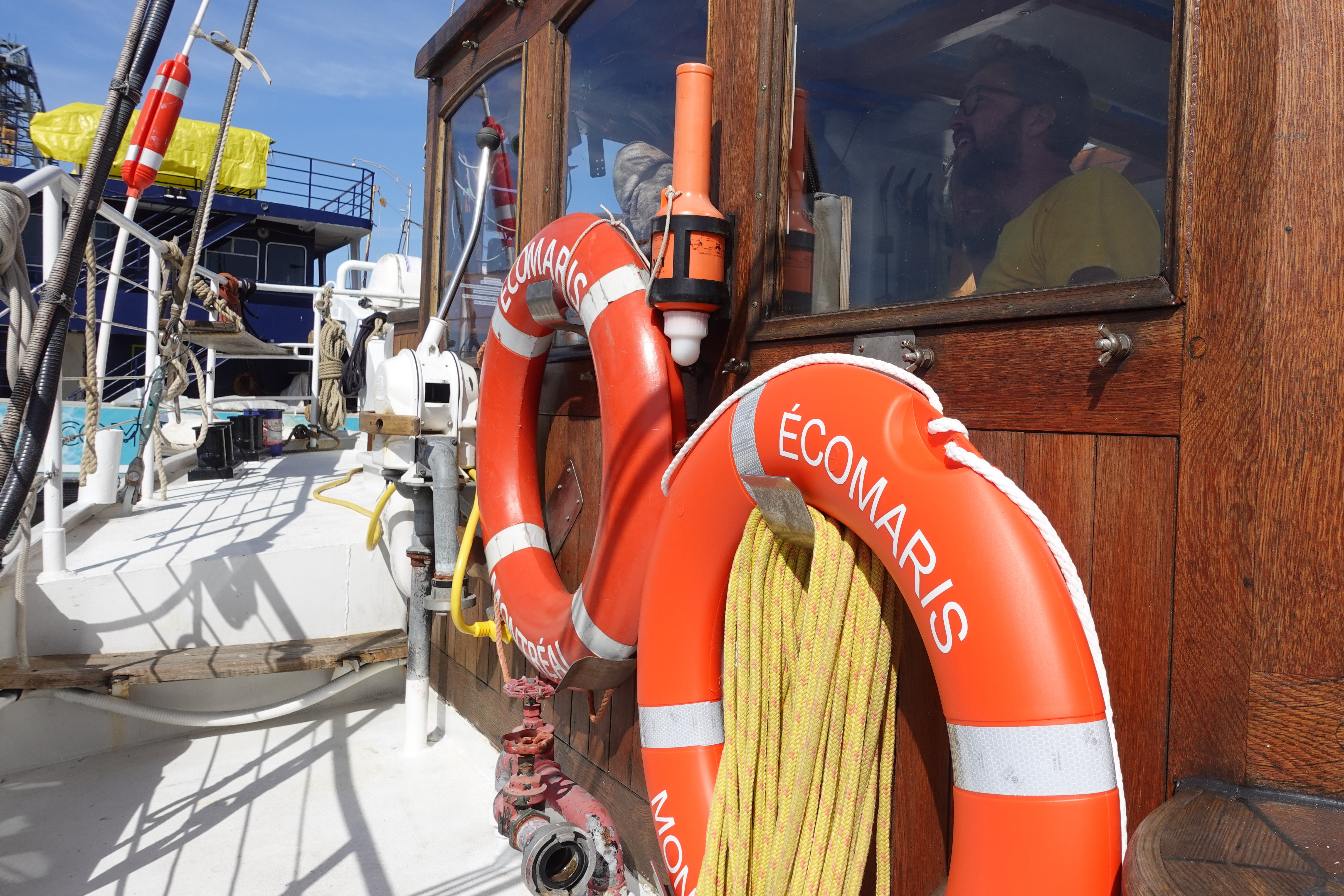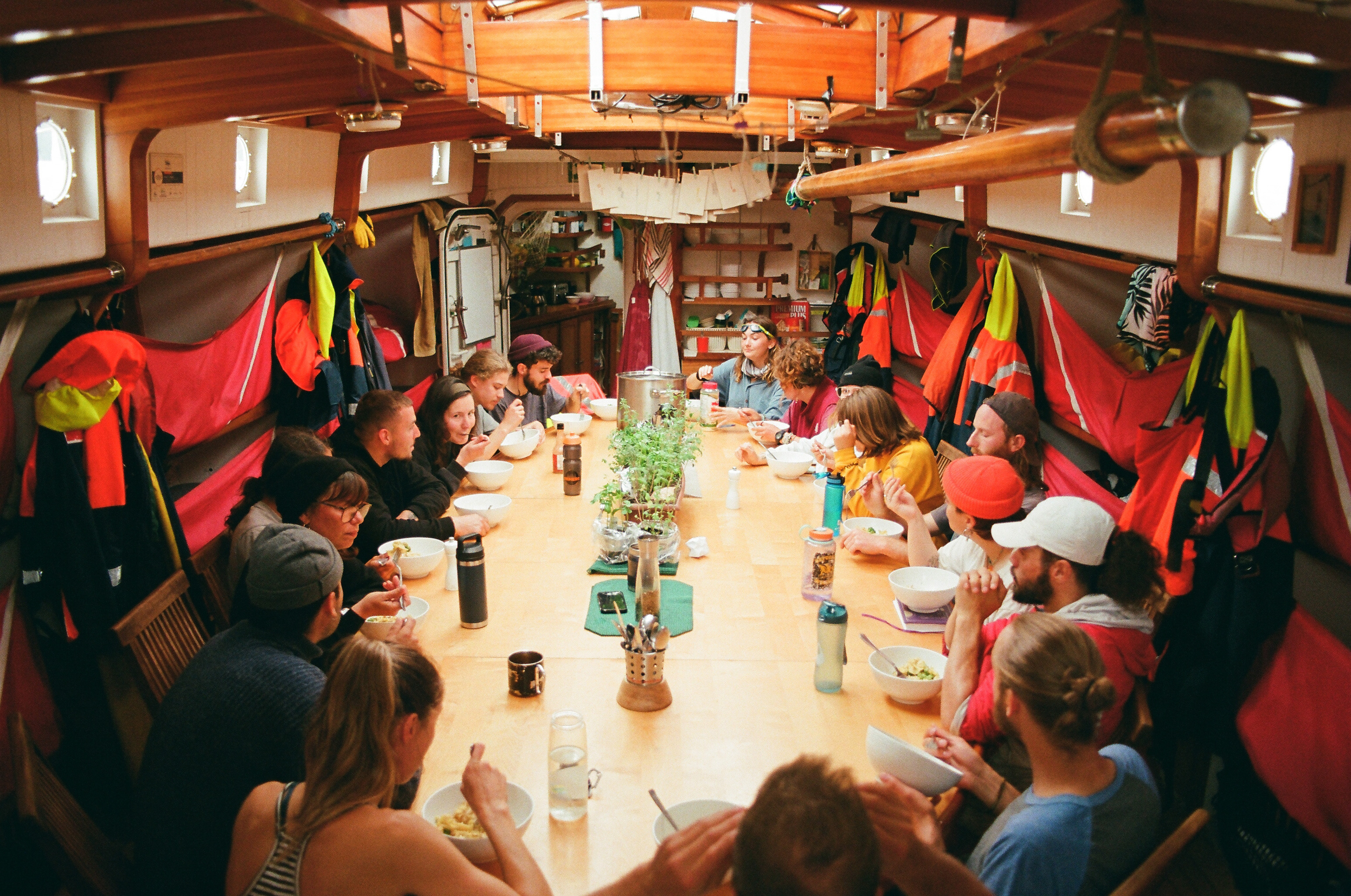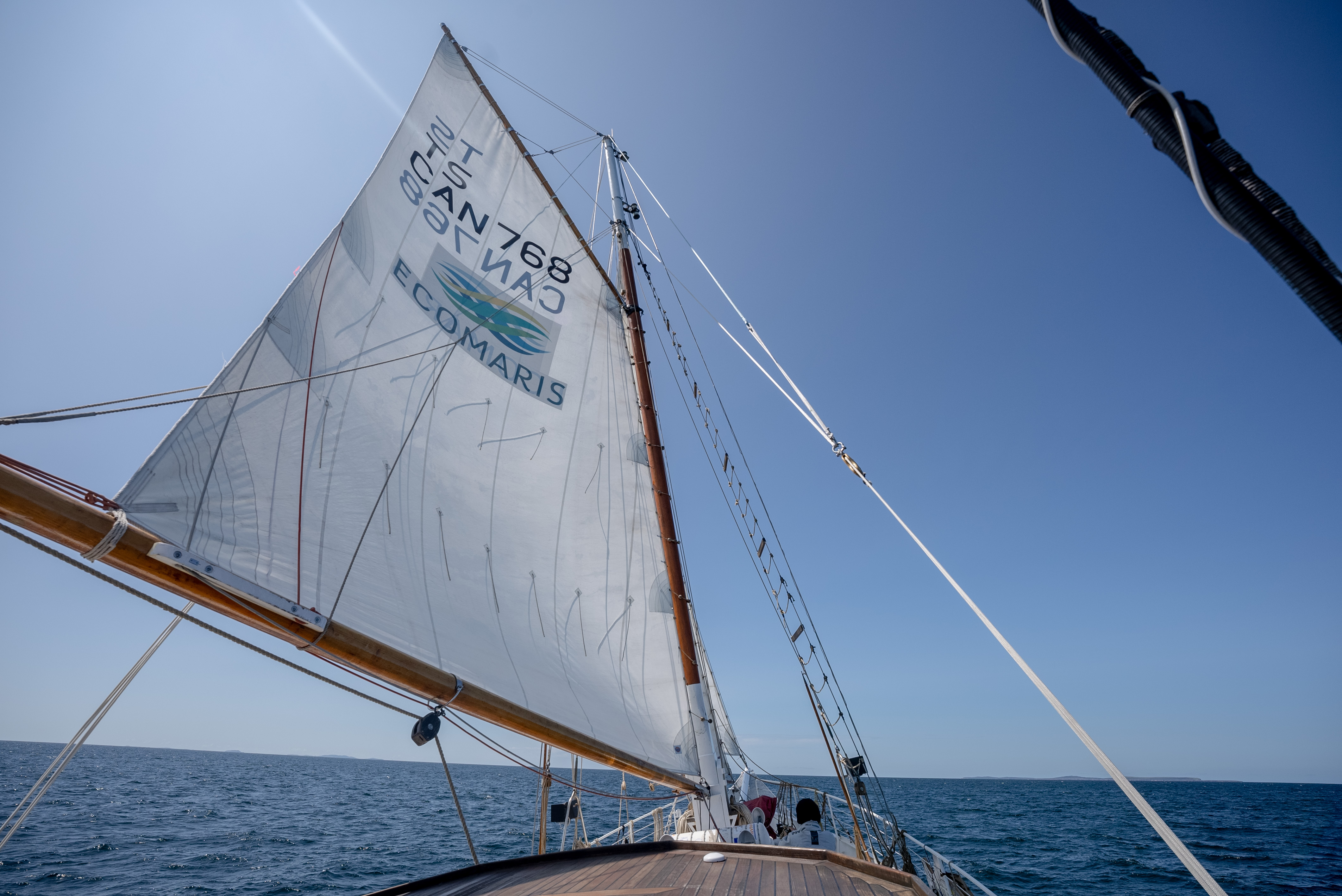
EcoMaris: Going to school differently
Over ten years ago, Simon Paquin launched EcoMaris, an ambitious and visionary venture to create the first sail training program in Quebec, with the aim of introducing as many people as possible to the St. Lawrence River and the rudiments of sailing. But in the course of a lesson, the sail training school ultimately offers much more...
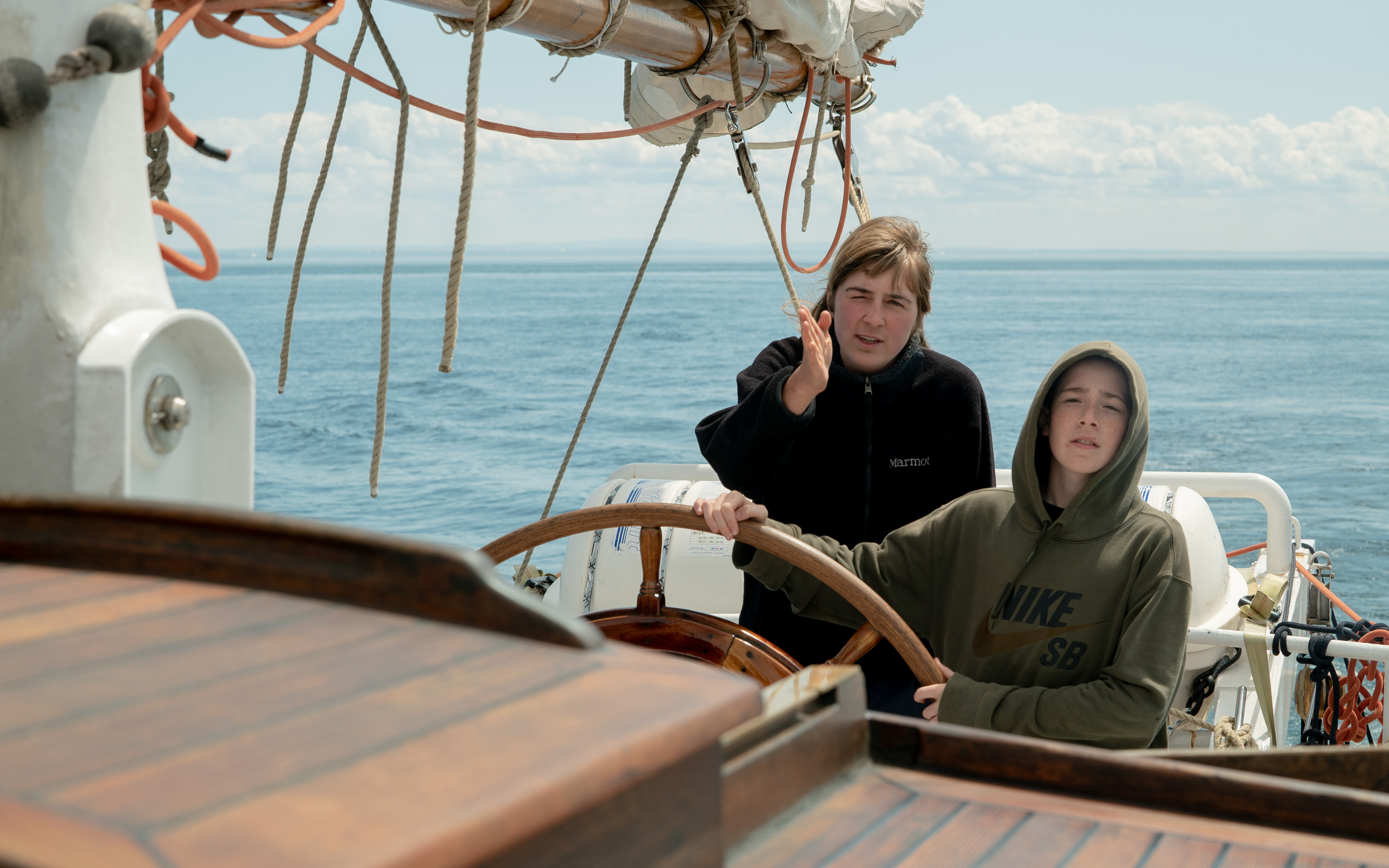
“We use the sailboat as an educational tool,” said Simon. “At the end of their time with us, our apprentice sailors are able to handle the vessel and control it.” This involves not only tying knots, casting off, weighing anchor, taking the helm, plotting a position on a chart, learning about navigational aids, arranging ropes and mounting sails, but also, on a more scientific level, getting to know and understand the river, learning all about currents, winds and tides, as well as studying marine biology, white sharks and plankton.
In all, more than 200 people a year spend time on board, supervised by a crew of four. EcoMaris offers several programs for various target groups, including teenagers, school groups, Indigenous communities and female entrepreneurs. Whatever the lesson of the day or the target clientele, the sailing vessel itself shapes the experience as a whole. Once aboard, people take to the open seas... and set course for new horizons.
Learning to sail... and to live
What’s so special about being on the water? “The sea gives them time to take stock and see life differently, as if the vessel had the soul of a therapist. It’s a highly transformative experience.”
In the Capstan program offered to young adults, these are initially “young people who don’t necessarily know what to do with their lives and who want a time-out,” and on the adult front, “people come to us naturally when they’ve just been divorced, are going through a bereavement, want to change their career, or need some time to themselves.”
On board, everything is organized around the common room and the big central table. “There’s a sense of living together, a spirit of sharing and teamwork that you rarely find elsewhere.” Then there’s the sometimes arduous experience of the open sea. “You have to have a thick skin to sail the river, or be willing to toughen up. They work hard, get up early, help with ship maintenance and everyday tasks.” Is that enough to discourage a cohort of teenaged sailor apprentices? On the contrary! “They want to come back. We’re taking them out of their comfort zone, breaking the mould of screens, drugs and wasting time. Aboard the vessel, they’re always in action, and they feel alive!”
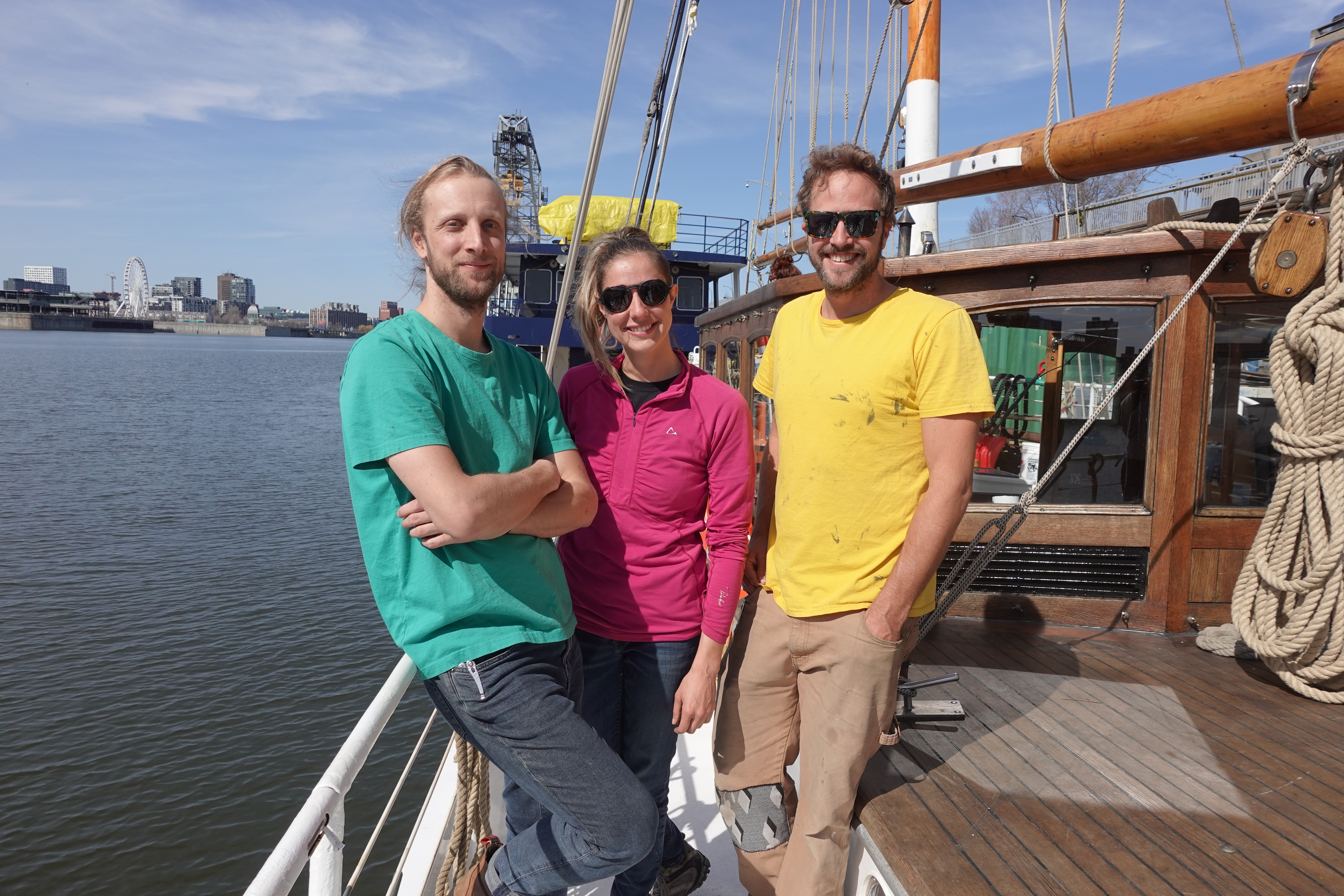
In his five years as master of the EcoMaris, Charles-Olivier Bonnardeux confirmed that “when they set foot aboard ship, they often don’t know what to expect, but in the end, the ship always works its magic.”
The result? “When I launched the program, I never thought it would have so much impact. You can see the transformation in their faces,” continued Simon. An example or two? There was a young man so lacking in self-confidence that he didn’t dare touch the helm. “He didn’t understand how I could put him in charge of my ship. When he finally took the helm, he calmed down, succeeded and was moved to tears. He gained a self-confidence that will stay with him for the rest of his life.” The first time a Capstan alumna returned with her Transport Canada master’s certificate. “She went from a young woman who had no idea what to do with her life to a confident woman able to dock her own ship. I was so happy!” To see one young person who had never left Montreal thrilled to set foot on the dock in Quebec City, and another whose family tradition predestined him to factory work, open up to other professional possibilities such as architecture, mechanics or marine biology: “We show them that anything is possible. EcoMaris is a catapult for young people who are trying to find themselves. We help optimize people’s strengths and develop their full potential.”
A utopian businessman
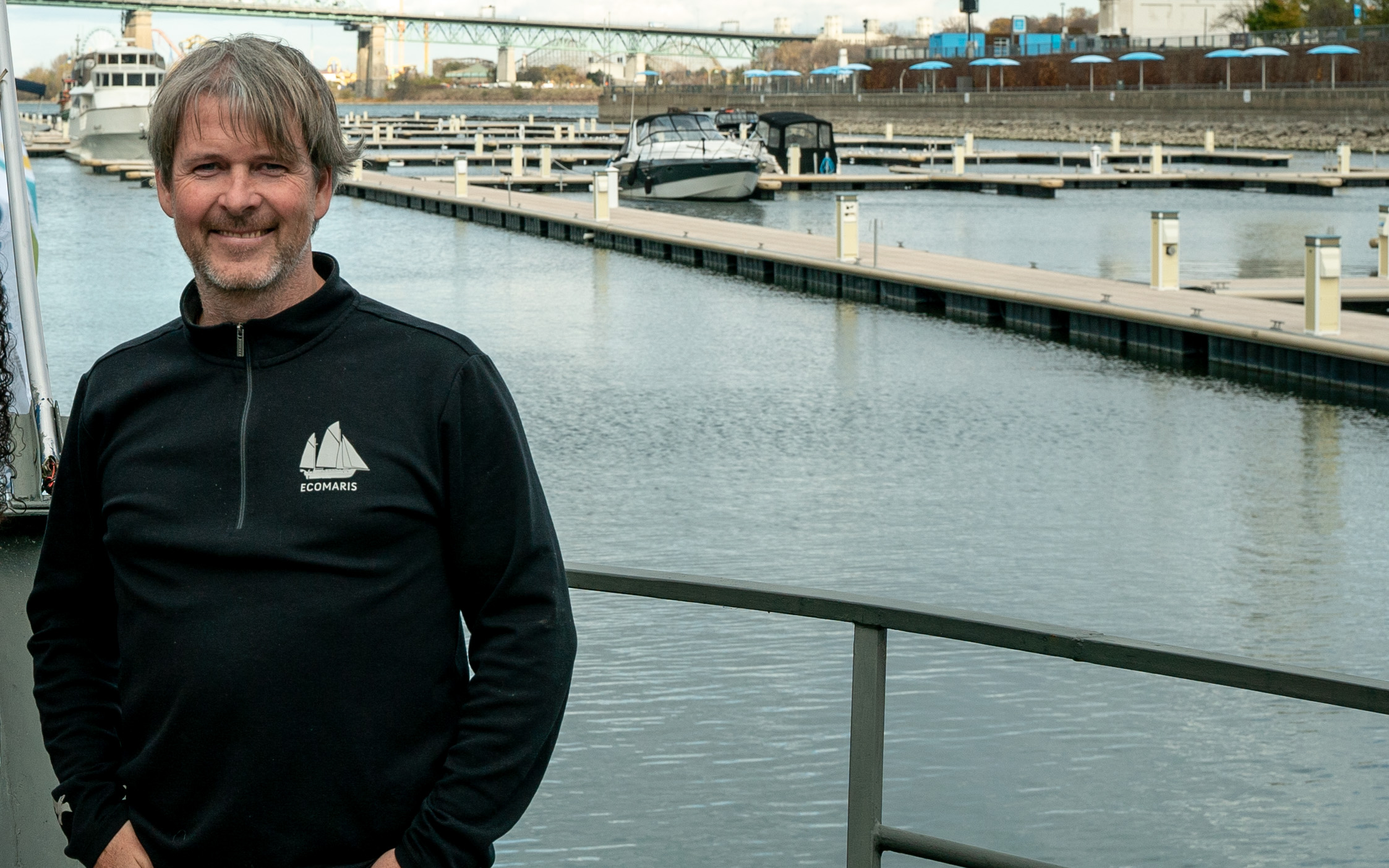
Trained as a psychoeducator and an avid sailor, Simon has travelled from the West Indies to the Mediterranean, worked as a diving instructor, fished salmon in Alaska and crossed the Atlantic several times, before setting sail again on the St. Lawrence in 2007. “I was won over! I said to myself what a magnificent expanse of water we have, but there aren’t any training vessels, even though there are plenty around the world.”
With the mission of ensuring that as many Quebecers as possible can benefit from it, the sail training vessel has captured a niche market, that of education and initiation to science. “It’s a real vocation,” said Simon, but there are still a lot of challenges to keep operating. The season is short and risky, the operating, maintenance, hiring and acquisition costs are enormous... “It’s not a classic business plan,” Simon told us, to such an extent that he often encountered a great deal of skepticism. “Initially, I remember that my project presented to the CLD was one page long. A lot of people didn’t understand why I wanted to do this.”
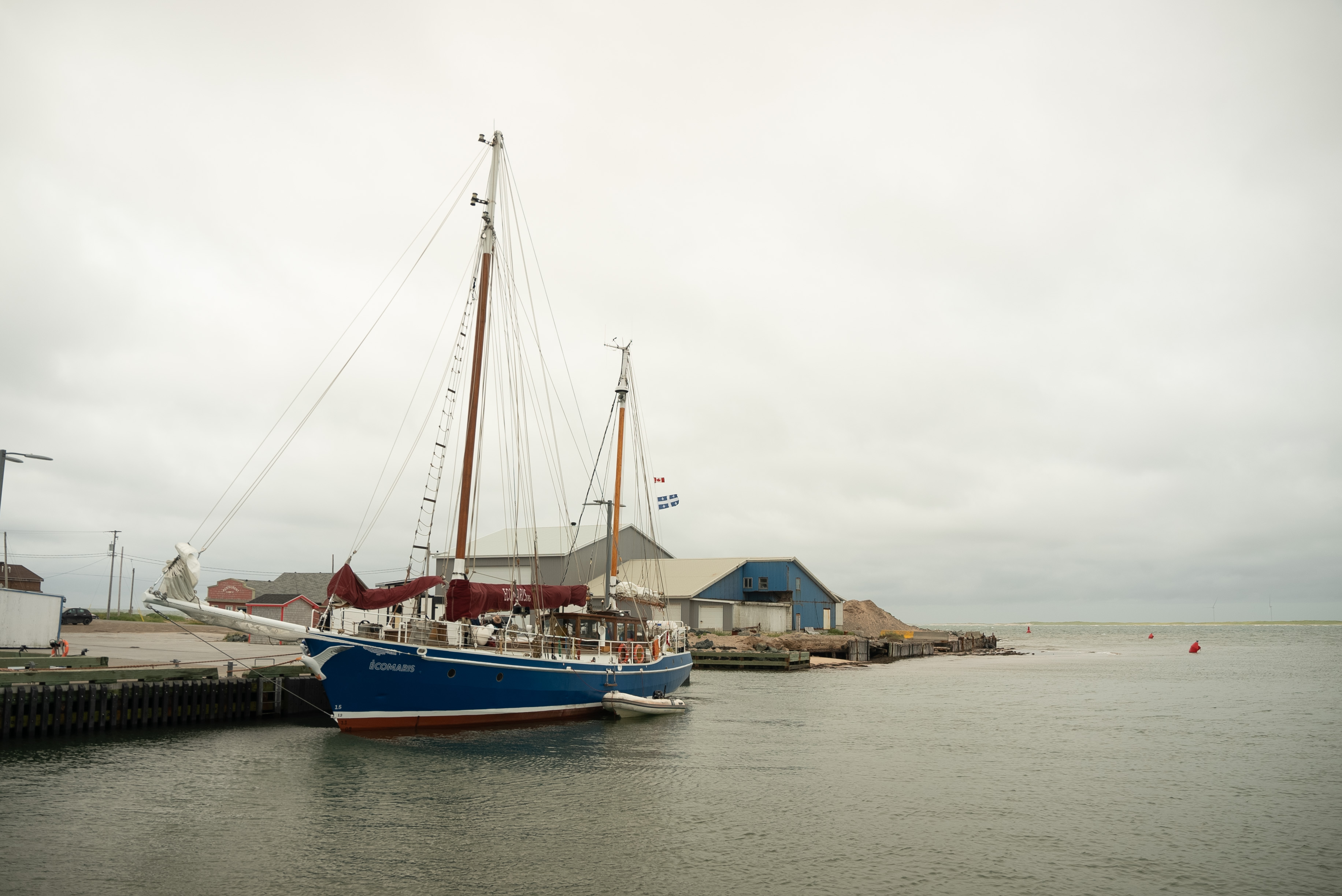
Now, however, EcoMaris has 40 employees, two sail training vessels, four programs, financing and several partners. After over a decade in operation, the sail training vessel’s reputation is so well established that the team is struggling to keep up with demand. EcoMaris is also firmly rooted in the marine industry community and supported by the Port of Montreal, Ocean Group, the Seaway, the pilots’ corporation and Fednav. In turn, the sail training vessel contributes to training the next generation. “There are people who come to do their first nautical miles with us, then go on to work for the Coast Guard, Ocean Group, Fednav or on ferries.”
With his sights always set on the future, Simon is constantly working on new projects to broaden his offer, reach out to new audiences and gain financial independence. Starting this year, EcoMaris will be launching the Philomaris program, aimed at primary school children. The principle is philosophy on the water! “We offer the ideal framework for asking questions and enabling them to think differently.” The organization has also acquired a second vessel, the EcoMaris 2, which will welcome tourists and the general public to experience the river. “I want as many people as possible to be able to enjoy it. I’m a utopian and a total dreamer!”

